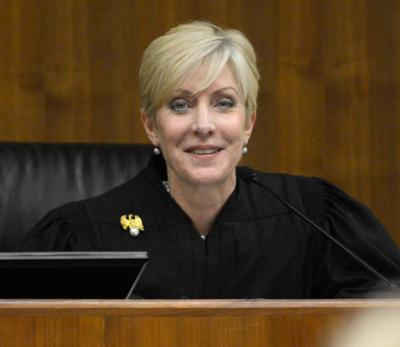Whether Louisiana should have a second majority Black congressional district is a question that a reasonably bright schoolkid could answer within minutes, but the state's political authorities made quite a song and dance over it in recent years.
At last, it seems that the game is up. The courts are poised to order a realignment of boundaries that will give Black voters an advantage in two of Louisiana's six districts. Since just about one-third of the state's voters are Black, the case for the change is mathematically indisputable. But math cuts no ice with the GOP when a congressional seat is at stake and the status quo of five White seats has been long and sternly defended. Now, the state has until the end of January of next year to deliver some cartographic justice.
We equate cartographic justice with justice on the ground because we take it for granted that Whites will vote for Whites and Blacks for Blacks, and there is no reason to think racial loyalties will diminish.
In fact, electoral habits are a bit more complicated than that; as the website Think504 recently noted, while Whites will vote for Whites, it can be a challenge to get Blacks to vote at all. In New Orleans, for example, Black voters hold a 54% to 37% advantage, which will always be more than negated by low Black turnout on election days. The reasons for such chronic apathy can only be guessed at, but, as Think504 noted, Black people are often poor, and poor people may have higher priorities than politics.
From a legal point of view, the whole debate seems to have been a no-brainer, with the federal appeals court in New Orleans upholding lower court rulings that the post-census congressional redistricting adopted by the Louisiana Legislature was discriminatory and a violation of the Voting Rights Act.
It may well be therefore that the redistricting kerfuffle will wind up changing the political complexion of Louisiana's congressional delegation, albeit not by much. Our five majority White districts are Republican, a partisan imbalance we have achieved in part by taking a bunch of Black voters in such places as New Orleans and Baton Rouge and stuffing them into an arbitrary new alliance.
If we were to adopt a more rational population mix in the new district, some budding member of Congress would likely be out of a job, but the direction and nature of state government in Baton Rouge would not perceptively change. The GOP majority in the House there is more than large enough to withstand the sudden loss of one conservative stalwart.
Even if the replacement for that lost conservative should be a raving liberal, the tenor of Louisiana's political life will not be much different when we double the number of Black majority Congressional districts.
Fairness says we should do it anyway.

